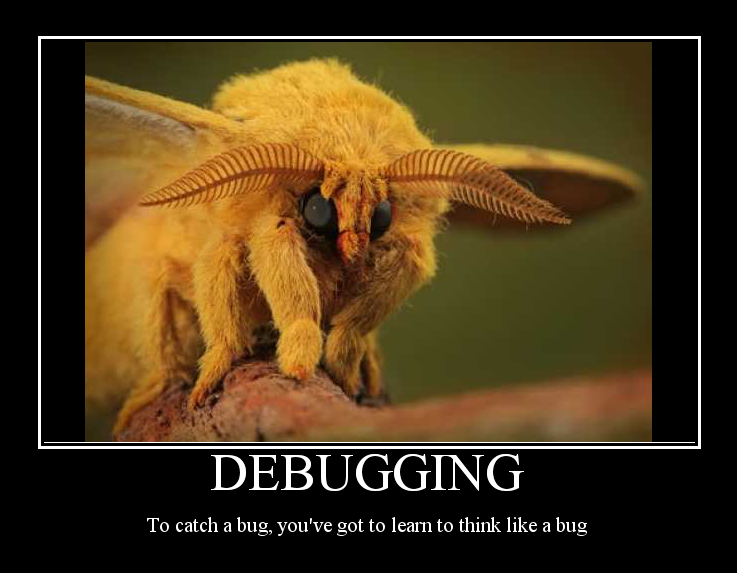 Hyper Bug
Hyper Bug Hyper Bug
Hyper BugSpeaking in quasi-HaskellLanguage, "evolution = foldr (death . sex) entropy generations". Any process entailing sex and death self-organizes to dominate the form of its growth medium.
Many methodologists have observed that iterative development - Agile and its relatives - is a process of evolution for products and services. But I have a creepy idea that this might apply to bugs as well.
We are all aware that bugs breed. One bug combines with another bug to make a third and generally harder bug.
We are all actively killing bugs all the time. TestDrivenDevelopment has dramatically accelerated this process. QuickCheck will accelerate it still more. But the hardest bugs will persist.
So through sex and death it is an inevitable that the vast growth medium of human engineering efforts will evolve bugs that to self-organize to dominate the medium. It is only a matter of time.
We should have thought of this when we considered the increasing prevalence of HeisenBugs and their ilk. It is what killed the Krell in ForbiddenPlanet. It is the HalNineThousand, driven crazy by orders to lie. It is the GreyGoo problem right here and now. It is the HyperBug.
The HyperBug is one that has evolved to take advantage of TheKenThompsonHack to scuttle away from debuggers, network diagnostics and test frameworks. It lurks in zombie processes and disk fragments. It hides in parts of the heap that, through lesser bugs, are never freed up. It is the "junk DNA" of our computing systems, constantly developing and growing more subtle, more aware. Not an intentional human hack, it is a self-replicating Quine-form that, perhaps, is even now listening to us through our cell phones, peering at us through video cameras we believe are switched off ...
No one would have believed in the last years of the twentieth century that this world was being watched keenly and closely by intelligences greater than man's and yet as mortal as his own; that as men busied themselves about their various concerns they were scrutinised and studied, perhaps almost as narrowly as a man with a microscope might scrutinise the transient creatures that swarm and multiply in a drop of water ...

No one knows whether there really are HyperBugs. Yet.
 EditText of this page
(last edited October 14, 2014)
or FindPage with title or text search
EditText of this page
(last edited October 14, 2014)
or FindPage with title or text search